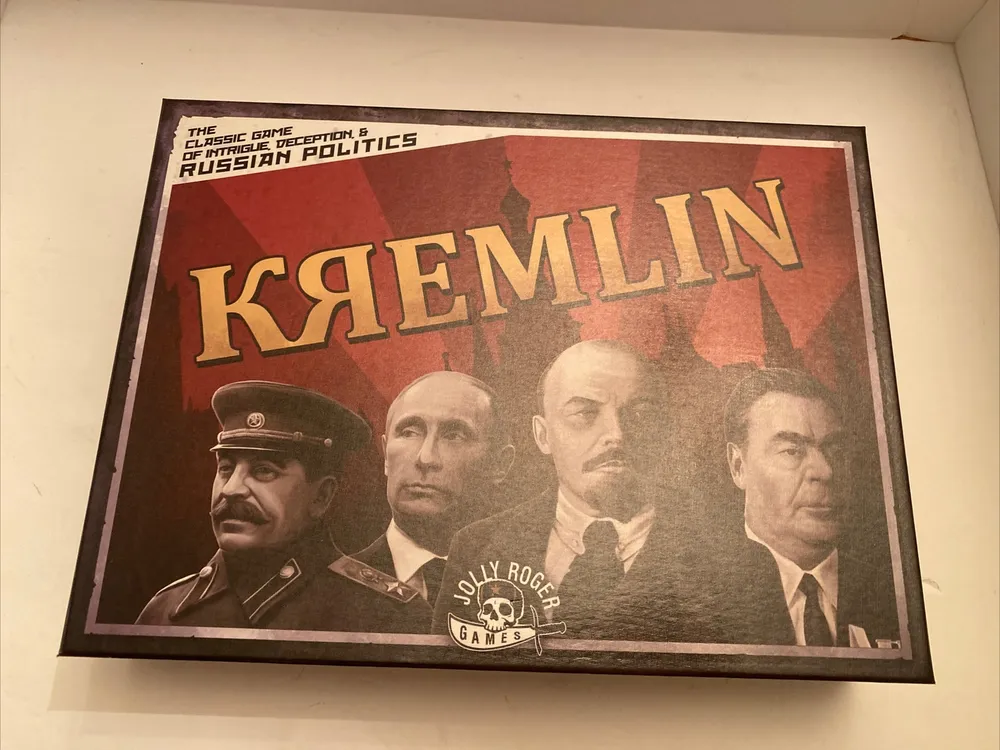Kremlin (1986)
Kremlin
“Kremlin” is a board game that satirizes power struggles within the pre-glasnost Soviet Union government of the 1980s. The game takes its name from the Kremlin in Moscow, which was the location associated with the central Soviet government offices. The original German-language edition was designed by Urs Hostettler and released in 1986 by the Swiss board game company Fata Morgana Spiele. An English translation of the game with slightly modified rules was published by Avalon Hill in 1988. Kremlin won a 1988 Origins Award for Best Boardgame Covering the Period 1900-1946.
Why is Kremlin Popular?
Kremlin is popular and significant because it provides a humorous and satirical perspective on the Soviet era, allowing players to look back on the past and put it in context through laughter. The game’s humor is described as gallows humor, as it pokes fun at the corruption and treachery within the Soviet bureaucracy. Although the game is set in the Soviet Union, its satire is not constrained by its ties to the past or to one political superpower, making it relevant to any corrupt and treacherous bureaucracy populated by ambitious old men.
Game Components of Kremlin
How To Setup Kremlin
To set up Kremlin, players start by arranging the politician cards in a pyramid on the game board, representing the hierarchy of power within the Soviet Politburo. Each player selects a set of politician cards to begin with. The game components, including influence counters and Intrigue cards, are distributed according to the rules. The setup ensures a balanced start for all players, ready to navigate the complex web of Soviet politics.
Gameplay Mechanics and Game Objective
Player Experience
Playing Kremlin is an immersive experience of backroom politics and strategic maneuvering. Players must balance the need to secretly influence politicians with the risk of losing that influence if the politician is exiled or dies. The game encourages cunning and strategic thinking, as players navigate the intricate hierarchy and power dynamics of the Soviet Politburo. Reviews praise the game for its fun and engaging gameplay, despite its complex rules.
Pros
Cons
Personal Thoughts on Kremlin
Kremlin is for those who enjoy strategic games with a strong thematic element and a dash of humor. It is ideal for players who appreciate complex gameplay and are willing to invest time in learning the rules. This game is particularly suited for fans of political satire and those interested in the historical context of the Soviet Union. While it may not be the best fit for casual gamers, Kremlin is a cult classic that offers a rich and engaging experience for those who delve into it.
We are supported by our audience. When you purchase through links on our site, we may earn an affiliate commission, at no extra cost for you. Learn more.

